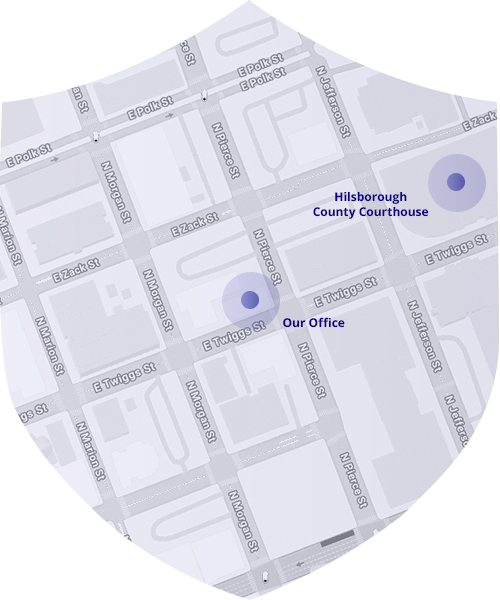- Free Consultation 24/7: (813) 727-7159 Tap Here To Call Us
When Going to Trial Costs You Nothing

How Florida’s Criminal Punishment Code Can Eliminate the “Trial Penalty”
| The Critical Rule When your Lowest Permissible Sentence (LPS) exceeds the statutory maximum, the LPS becomes the maximum sentence the court can impose—even after trial. |
Most people assume that going to trial dramatically increases their sentencing risk. Under Florida’s Criminal Punishment Code (CPC), this is often true. However, there’s one critical exception that completely flips the strategic analysis: when your lowest permissible sentence already exceeds the statutory maximum for your offense.
In these cases, you cannot receive a harsher sentence by going to trial. If the prosecution refuses to offer a deal below your LPS, and your lawyer doesn’t understand this leverage, you surrender the biggest strategic advantage the law provides.
Trial vs. Plea: When the Math Changes
| Normal Situation | When LPS > Statutory Max |
| Plea offers certainty at lower sentence | Plea above LPS offers no reduction |
| Trial conviction = risk of maximum sentence | Trial conviction = same max as plea (LPS) |
| “Trial penalty” creates pressure to plead | “Trial penalty” disappears completely |
| Leverage favors prosecution | Leverage shifts to defense |
How the Criminal Punishment Code Works
Under Florida’s CPC, every felony case generates a scoresheet that calculates a mandatory Lowest Permissible Prison Sentence (LPS). This LPS represents the minimum a judge must impose unless there’s an authorized reason to depart from the guidelines.
In cases involving serious offenses, multiple counts, or extensive prior records, the LPS can climb above the standard statutory maximum. For example, a third-degree felony normally carries a five-year maximum. But if your scoresheet calculates an LPS of 12 years, something important happens: the LPS becomes the maximum.
Florida appellate courts, including the Supreme Court, have consistently reinforced this principle:
“When the statutory maximum sentence as provided in section 775.082, Florida Statutes, is exceeded by the lowest permissible sentence under the code, the lowest permissible sentence under the code becomes the maximum sentence which the trial judge can impose.”
Recent Case: Harris v. State (2025)
| Harris v. State, 5D2024-1179 (Fla. 5th DCA Nov. 21, 2025) Charges: Third-degree felonies (statutory max: 5 years) CPC Scoresheet LPS: 154.950 months (approximately 12.9 years) Illegal Sentence Imposed: 15 years Result: Sentence vacated—exceeded the legally controlling maximum (the LPS) |
The trial judge sentenced Harris to 15 years—but his LPS was only 154.950 months. The Fifth DCA vacated the sentence because it exceeded the legal maximum. This case demonstrates both the rule and what happens when judges violate it.
What This Means for Your Defense Strategy
When your LPS exceeds the statutory maximum, several powerful strategic realities emerge:
- Plea Advantage Disappears: If the State refuses to offer a sentence below your LPS, that plea provides zero reduction in your sentencing exposure.
- Trial Risk Neutralized: Going to trial doesn’t increase your sentencing exposure because the post-conviction sentence is capped by the LPS.
- “Trial Penalty” Eliminated: The traditional fear of receiving a harsher sentence for exercising your right to trial vanishes.
- Leverage Shifts to Defense: You have everything to gain by going to trial—seeking acquittal, dismissal, or reversal—and nothing additional to lose on sentencing.
Why Your Lawyer Must Understand This Analysis
This CPC analysis separates true major-felony trial lawyers from attorneys who primarily handle high-volume dockets or rely on plea bargaining. Only a lawyer who understands this nuance will:
- Immediately calculate the LPS from the CPC Scoresheet
- Compare the LPS to the statutory maximum and recognize when LPS controls
- Confront the State with this reality: their offer provides no actual incentive if it’s not below the LPS
- Prepare for trial knowing the client’s sentencing risk is identical to the best offer being made
Without a lawyer who executes this analysis, defendants are often pressured into accepting pleas that offer zero benefit compared to post-trial sentencing risk.
Frequently Asked Questions
Is a plea offer above the LPS worthless?
Yes. A plea that doesn’t go below the lowest permissible sentence gives you nothing you wouldn’t also face after conviction at trial. The only value in a plea is guaranteed sentence reduction.
Can I really get more time for going to trial in this situation?
Not legally. When your LPS exceeds the statutory maximum, the judge cannot sentence you to more than the LPS—even after trial conviction.
What is the “trial penalty” or “trial tax”?
The trial penalty is the extra time a defendant may receive after losing at trial compared to a plea offer. In theory, judges shouldn’t impose harsher sentences just because someone exercised their right to trial—but in practice, the gap between plea offers and post-trial sentences can be significant. When LPS exceeds statutory max, this penalty disappears.
If the prosecutor refuses to negotiate below LPS, should I go to trial?
When the prosecutor refuses to offer a sentence below the LPS, your sentencing exposure is identical at trial. Their refusal removes the only leverage a plea might provide, making trial a rational strategic choice to seek acquittal or dismissal.
Do I have to go to trial?
Not necessarily. In many cases, prosecutors will negotiate once they know your attorney is fully prepared to fight. When the State realizes trial is a real possibility, they may agree to a significant departure from guidelines or offer a resolution they’d never consider for an attorney who only pleads cases. A strong trial posture often creates better plea options—sometimes far better than what was originally offered.
Does This Apply to Your Case?
Understanding whether your LPS exceeds the statutory maximum requires careful scoresheet analysis. If it does, you may have leverage your current attorney hasn’t identified—leverage that could change everything about how your case should be handled.
I’m Tampa Attorney Rocky Brancato. For over 25 years, I have tried major felony cases throughout Tampa Bay. I understand the Criminal Punishment Code, the case law that governs it, and how to use this technical leverage to force better outcomes for clients.
Call (813) 727-7159 for a Case Evaluation
620 E. Twiggs Street, Suite 205, Tampa, FL 33602.

















